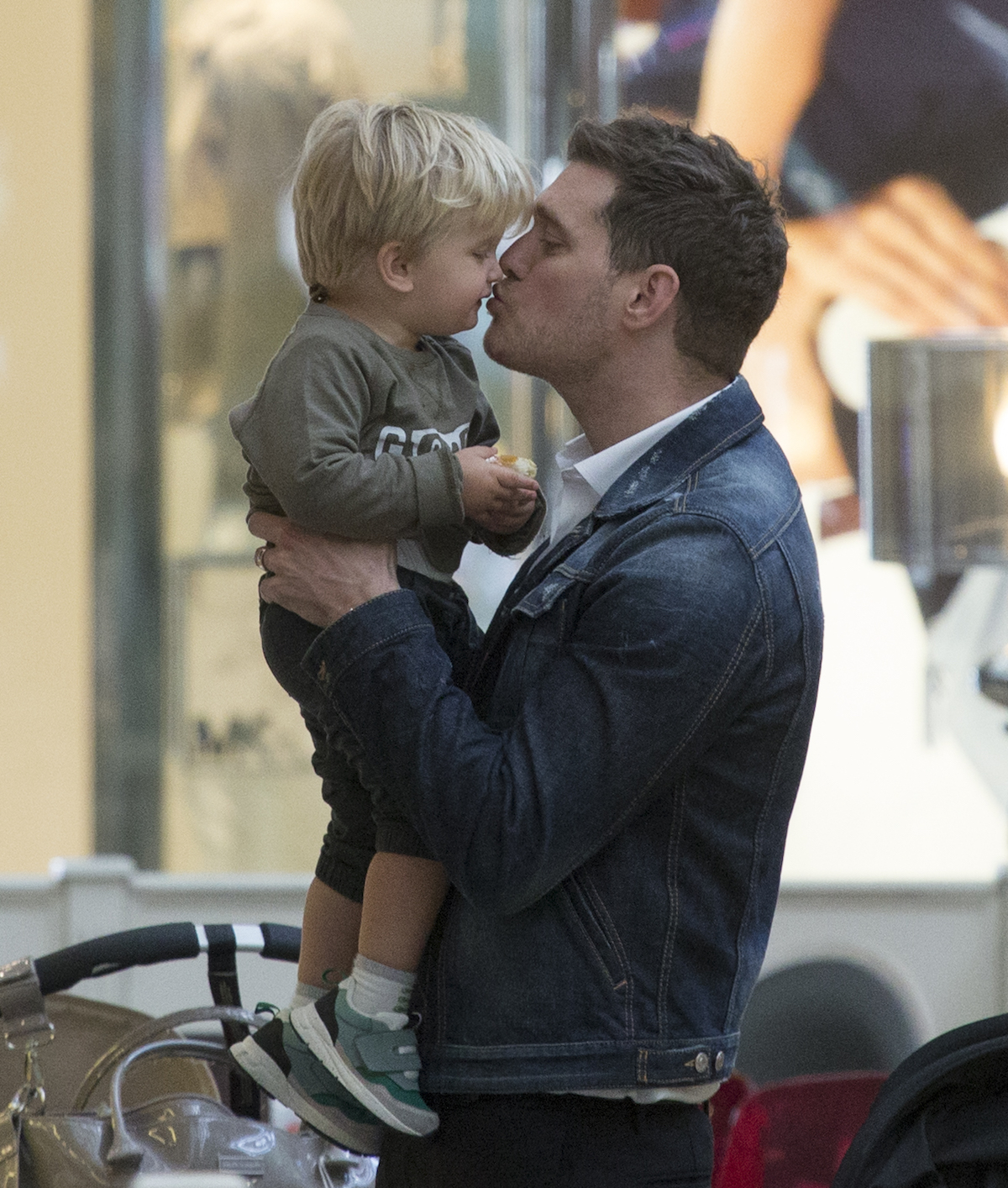Supporting Young Cancer Warriors
- Singer Michael Buble, 49, shared that caring for his oldest child, who was diagnosed with liver cancer at three years old, was life-changing.
- A child’s cancer diagnosis affects the entire family, so when assuming the role of a caregiver, it’s important to remember to be your child’s biggest advocate so they receive the best care possible. This includes making sure any concerning symptoms are fully and expeditiously addressed.
- Among the emotions Buble and his family experienced include scan anxiety, also known as “scan-xiety.” It’s the uneasy feeling cancer patients and their loved ones experience before, during, and after cancer scans, fearing it will worsen or return if in remission.
“The Voice” coach and award-winning singer Michael Buble, 49, recently celebrated his oldest child, Noah’s 11th birthday. Noah was diagnosed with cancer when he was just three years old, which, according to the GRAMMY-winning singer, changed how he “saw life in a big way.”
Noah was diagnosed with liver cancer in 2016.

September is childhood cancer awareness month, and it’s around this time of year that Buble is often reminded of the immense gratitude he has for the care his son received while undergoing cancer treatment.
Childhood cancers can display a wide variety of symptoms, so parents must remain vigilant for anything unusual with their children.
Expert Resources on Liver Cancer
- Why Do Pediatric Drugs Take So Long to Develop? A Look into the Lag Time on Drug Approvals for Childhood Cancer & Other Illnesses
- Daily Aspirin Use Reduces the Risk of Ovarian Cancer and Liver Cancer
- Bile Duct Cancer and Liver Cancer — Same Organ But Different Diseases
- Understanding All The Words Your Doctor May Use When Talking About Your Liver Cancer Diagnosis
- Understanding Liver Cancer — Signs, Symptoms & How it is Treated
Noah’s Journey
According to the National Cancer Institute, Hepatoblastoma (liver cancer), which is what Noah had, is a disease in which cancerous cells form in the tissues of the liver. Blood tests, ultrasounds, CT scans (X-ray images), MRIs (medical imaging), and angiograms generally confirm a liver cancer diagnosis.
As the Children’s Hospital of Pittsburgh says, liver cancer is relatively rare in children. Hepatoblastoma only affects two to three people in 1 million.
WATCH: Treating Liver Cancer With A Tailored Approach Can Improve Results With Fewer Side Effects
Children suffering from hepatoblastoma may experience:
- A lump in the abdomen that may be painful
- Swelling in the abdomen
- Unexplained weight loss
- Loss of appetite
- Nausea and vomiting
Since children may not be able to express the symptoms they are experiencing, parents must be vigilant about physical and behavioral changes in their children.
“I always felt like I was Teflon; there was never a moment that could get the better of me,” Buble said.
As his son’s prognosis improved in 2018, Buble was “still a wreck.” Fortunately, by December 2021, Buble revealed Noah had reached remission.
WATCH: Dealing with anxiety around cancer scans.
“He’s really good. It’s been almost five years. We still have the scans and the ‘scan-xiety,’” Buble said to Smooth Radio. The National Cancer Institute explains that the signs and symptoms are reduced or disappear when cancer reaches remission. Reaching five years in remission is considered a remarkable milestone because cancers that return do so within the first five years after treatment.
Supporting Your Young Cancer Warrior
Advocating for your and your child’s health is essential to getting the necessary care before a condition worsens. Some cancers can have subtle symptoms, so don’t delay seeing your doctor. Thankfully, Noah had watchful parents looking for subtle signs that something was amiss.
Family members caring for a child diagnosed with cancer can be stressful. Family support not only eases the anxiety of the cancer patient, but the added support also helps their loved ones.
Caregivers of cancer warriors must also watch out for “caregiver burnout,” where stress, anger, fatigue, and illness emerge from putting another person’s needs ahead of yours.
Caregivers who struggle to care for a cancer warrior should seek out a therapist or a support group, either online or in person.
As parents navigate the cancer journey with their young cancer warriors, it’s important to remember children’s bodies may react differently to treatments than adults because their bodies are still growing.
“They may receive more intense treatments…and they may respond differently to drugs that control symptoms in adults,” according to the National Cancer Institute, so it’s important to ask plenty of questions to doctors throughout the cancer journey.
Learn more about SurvivorNet's rigorous medical review process.

